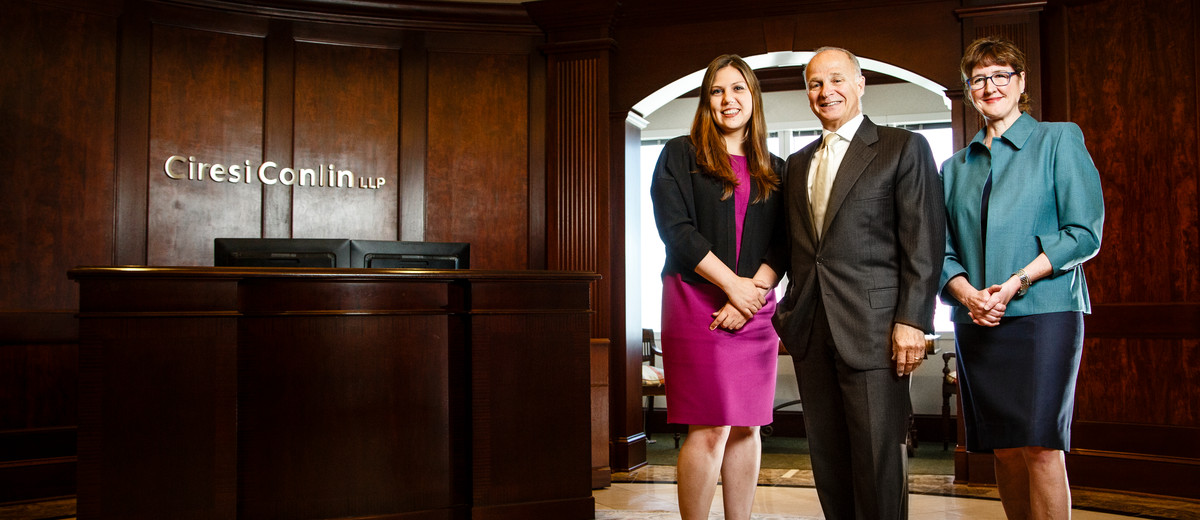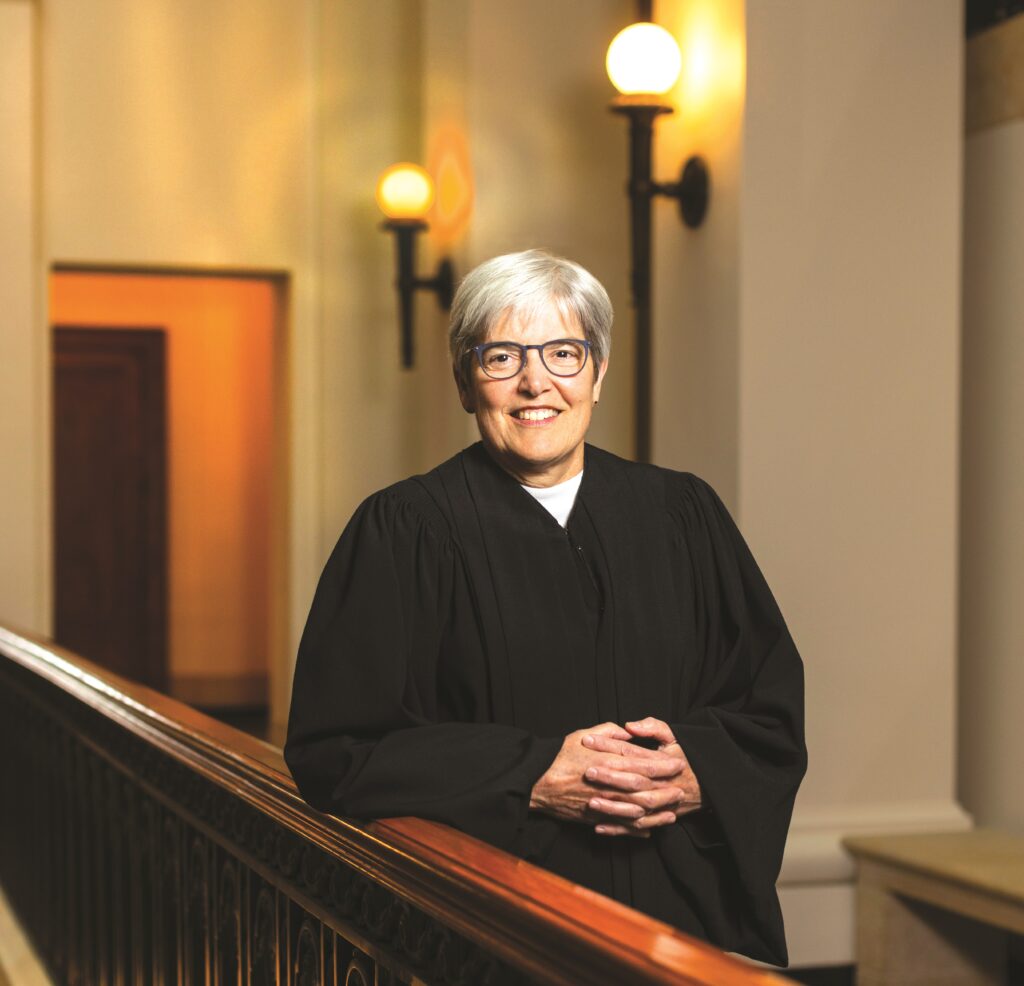Mike Ciresi, widely recognized as a top trial lawyer in the United States, has always liked adventure and the unknown. He never shies away from risky, high- profile cases. While at Robins, Kaplan, Miller & Ciresi (RKMC), he was involved in settlements exceeding $12 billion, including $7.1 billion against the tobacco industry and $500 million against Union Carbide for a gas leak in Bhopal, India. He also ran for U.S. Senate – twice. Last winter, after 44 years at RKMC, one of the largest law firms in the Twin Cities, he and two colleagues left to form a litigation specialty firm, Ciresi Conlin LLP.
At a time when Minnesota legal firms have been merging with out-of- state firms to be able to take on more clients, Ciresi Conlin LLP chose to go small. How can a boutique law firm tackle complex litigation? Flexibility is the key. As a trial specialty firm, its attorneys have the flexibility to come in as advisers, handling litigation while partnering with a variety of contract lawyers and larger firms locally and around the world, choosing the attorneys that fit best with a particular client’s needs. So really, their resources are limitless.
“We can put together a team that’s unparalleled,” said Ciresi, a 1968 graduate of the university and a UST School of Law Board of Governors member.
The firm’s other named partner is well-known trial lawyer Jan Conlin – a 1985 graduate of the university and, like Ciresi, a member of the School of Law’s Board of Governors. Along with Katie Crosby Lehmann, the three veteran litigators formed Ciresi Conlin LLP in February, located in Capella Tower in downtown Minneapolis.
Heather McElroy, a 2004 graduate of the UST School of Law and a faculty mentor in its Mentor Externship Program, along with two other partners soon joined them.
Conlin said the move from RKMC to the new firm has reinvigorated her. “Anytime you leave a place that created the entire fabric of your law life, you may miss some aspects of it, but this is a new adventure.”
When McElroy learned that Conlin and Lehman were leaving RKMC, she asked to join them. “They were great mentors to me and brilliant lawyers,” McElroy explained. “It’s the quickest big decision I ever made. ... When you make bold moves, you naturally shake everything up. It helps your brain shift.”
These like-minded risk-takers find that operating on a smaller platform allows them to choose the cases they want and the opportunity to support their own philanthropic causes.
“Something I learned at St. Thomas – be bold and serve the common good – that’s critically important,” Ciresi said.
For Ciresi Conlin LLP to accept a case, it has to involve principles that protect a client’s future and benefit the community. “Money is not the issue, principle is,” Ciresi said.
One such case involves White Bear Lake, which has lost a quarter of its volume over the past decade. Four of the six attorneys at Ciresi Conlin worked pro bono on the case, which started when they were at RKMC.
When municipalities near the lake experienced growth and needed more water, they were granted permits from the Department of Natural Resources for an increased water supply through ground water, a process that essentially was draining White Bear Lake.
Acting on behalf of their clients, the firm sued the DNR under the Minnesota Environmental Rights Act to prevent further damage to White Bear Lake.
“We have a settlement agreement with the DNR, which is seeking money from the Legislature. If the Legislature doesn’t fund the settlement, then we’ll proceed with the trial,” Conlin said.
“The White Bear case fits with our two pillars: do high-level work at a high level of excellence, and spend a lot of time in pro bono or philanthropic work,” Ciresi said.
The firm plans to give a portion of its revenue to philanthropic causes in education. Ciresi will remain chairman of the RKMC Foundation for Children, which was formed from proceeds of the tobacco case. It has made grants in excess of $18 million with primary emphasis in pre-K – 12 education.
Ciresi Conlin LLP also plans to grow – a little. It will likely hire a few more attorneys to round out its staff.
“We need lawyers with a commitment to the community,” Conlin said. “Law is a force for social justice and they need to have the same vision. Our goal is to stay true to our mission statement. We’re not interested in building a traditional law firm.”
Its mission states: “Protecting the future for all: The law exists to be a force for good – a force that protects the promise of liberty and justice for all. This is why we exist. We practice law not only to protect what’s best for today, but to protect what’s best for all of us for the future.”
Read more from St. Thomas Lawyer.







